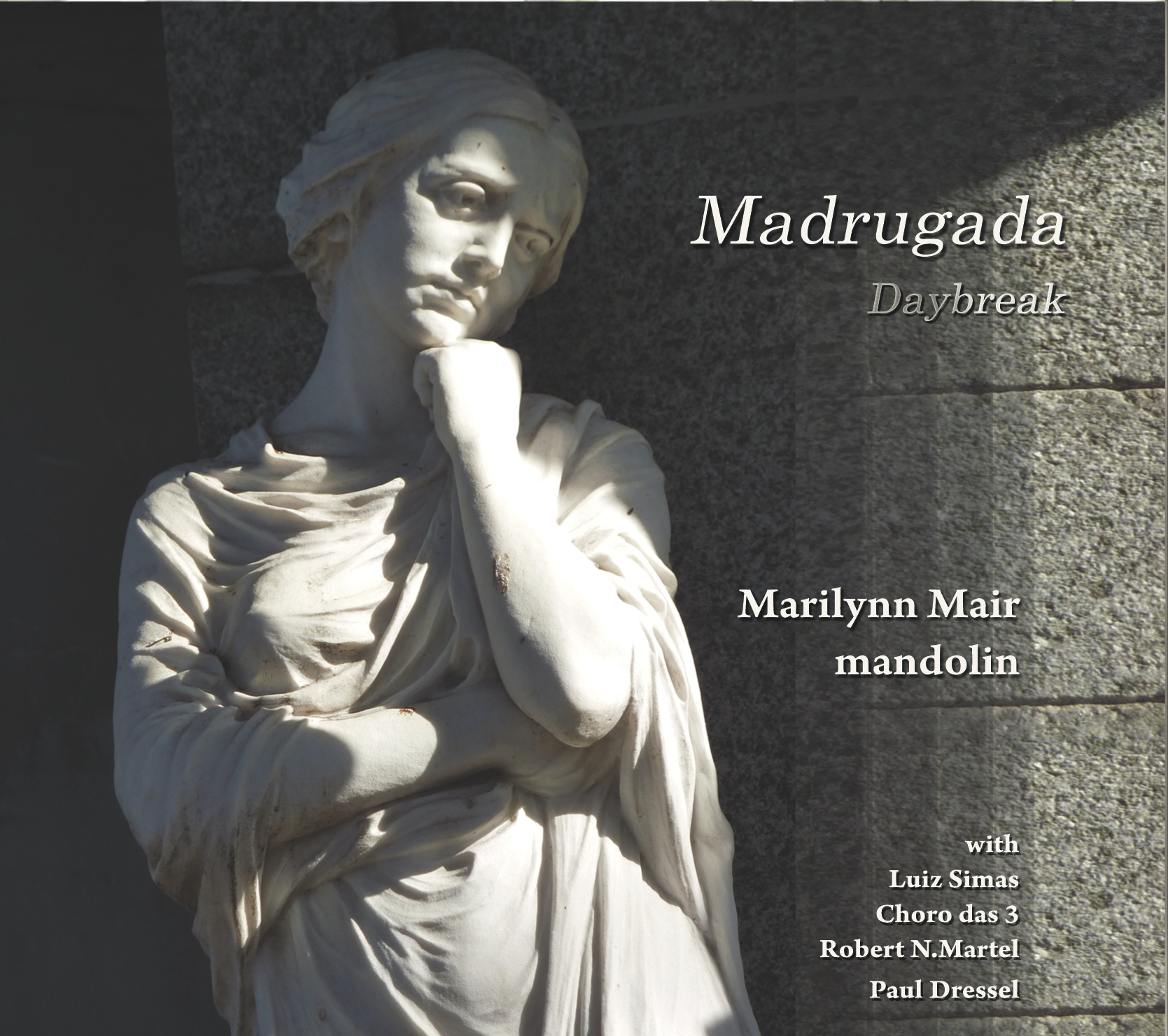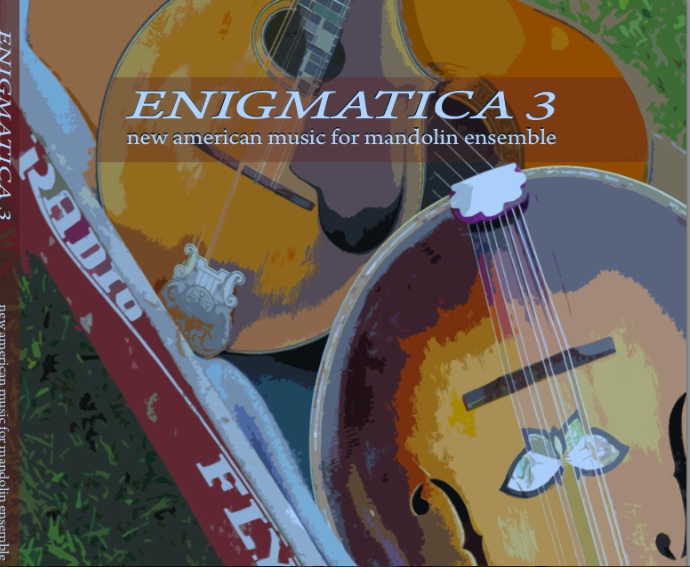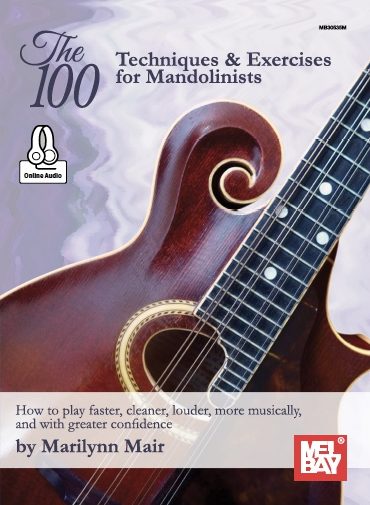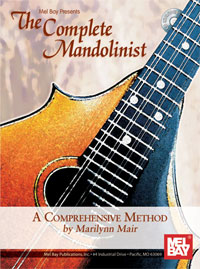This article first appeared in “Mandolin Quarterly,” Fall 2003
Howard Armstrong, legendary string-band fiddler and mandolinist, died July 30th, at the age of 94. An amazing musician who performed through 9 decades, he was the last of the black string-band musicians of the 20’s and 30’s, a player who traveled from Tennessee to Chicago and Detroit, fusing styles of southern folk blues with northern urban blues and swing to help create a unique chapter in American music history. Accolades for this beloved musician have appeared in news media everywhere, and the National Endowment for the Arts officially recognized him as a national treasure in 1990, with its National Heritage Award. Armstrong’s most famous string band, with Carl Martin and Ted Bogan, toured the country in the 20’s and 30’s, and reunited in Chicago in the 1970’s for 8 years, after Armstrong retired from the Chrysler assembly line in 1971.
Musicians, family, and friends came from all over the country to pay tribute to “Louie Bluie” at his funeral in Boston on August 8th. We saw, many of us for the first time, a 2002 PBS documentary film by Leah Mahan, ”Sweet Old Song,” that radiates the musical ability, charm and energy of Howard Armstrong and his artist wife of the past 22 years, Barbara Ward Armstrong. At the funeral I discovered from Barbara that, by coincidence, I had heard his last concert, New Year’s Eve 2002, in Providence. I wrote down the set list at the time, thinking I’d write a review, but MQ’s December issue arrived with an article on Howard, so I put the idea aside. Now, since it turned out to his last, I’m writing a synopsis of that performance now, in tribute to this extraordinary man and his remarkable life.
The quartet for the First Night gig included Howard on mandolin, and Barbara on drums and back-up vocals. Howard wasn’t playing fiddle for the gig, just mandolin, due to a stroke earlier in the year. They started the set with “Chinatown,” and as I told Barbara at the funeral, Howard started out slowly, then he revved up, got in the groove, and he was back. His guitarist and bass player, alas unnamed in the program, skillfully picked up his tempo and key, and gave Howard center stage while presenting him in impeccable context. “Silver-haired Daddy of Mine” followed, and then a rousing version of “Darktown Strutter’s Ball,” the highlight of the night, played with gusto on the mandolin in a ragtimey chordal style. Squint a little and you could see Martin and Bogan laughing on the side.
Howard then played and sang a German folk waltz, unidentified, sung in German, followed by a beautiful version of the gospel tune, “When He Calls Me”. He then gave an introduction to a composition of his own, “Streets of Chicago,” written about friends and musicians who had died and no longer walked those streets. He and Barbara jived it up a bit with a cheery version of “Dinah,” followed by “Bye and Bye”. They ended the set with one of Armstrong’s signature instrumental tunes, “State Street Rag”. Howard’s infamous standard introduction to this tune, told to me by Rich DelGrosso and captured in the film “Sweet Old Song,” was that you could play it too slow, but you couldn’t play it too fast. That tune was a fitting ending to what would be his last gig.
After the funeral, we adjourned to the Parish Hall of the First Church of Roxbury for talk, food, and, of course, music. Many of the men were wearing colorful necklaces called “tikis,” made by Howard to bring good luck. An impromptu trio of Guy Davis, guitar, Rich DelGrosso, mandolin, and Ralphe Armstrong, bass, serenaded Barbara and us all. Ralphe, Howard’s son, is a celebrated bassist who played with his father and the likes of John McLaughlin and the Mahavishnu Orchestra, Jean Luc-Ponty, Curtis Mayfield, Earl Klugh, and the Temptations. Rich DelGrosso, Los Angeles blues mandolinist and writer, played with Howard in Detroit and Chicago.
Musician and storyteller Guy Davis, an old friend, was later quoted on the PBS website, “I first met Howard in 1976 at the Hudson River Blues Revival and he was with Carl Martin and Ted Bogan — the trio Martin, Bogan and Armstrong. Howard was the most electrifying — his personality — the raconteur, the man of culture, the man of great mischief. Howard came from a line of musicians who lived on the streets, doing their work from bar-to-bar, club-to-club, corner-to-corner. The music was alive, present, right there in front of you. It wasn’t something that was pre-packaged and sent out over the airwaves with money as its first object.” Davis, DelGrosso, and Armstrong were alive, present, and right there in front of us too. The trio played together easily and joyfully, filling the church hall with the music Howard loved. It was a good send-off.
Daniel Gerwertz of the Boston Herald wrote of Armstrong, “An old-school Renaissance man, Howard ‘Louie Bluie’ Armstrong celebrated life daily Armstrong played ferocious, rhythmic fiddle and mandolin, and shouted his way through his gigantic repertoire almost until the day he died. He might well enter heaven with the same greeting he always gave his band: ‘I want you fellas to step it up and go, ’cause I’m dustin’ my broom and taking off.’ ” Howard Armstrong had a long, full life, and leaves a joyous heritage that enriches those who knew him, those who played music with him, all of us who heard him, and the legacy of American music, forever.





